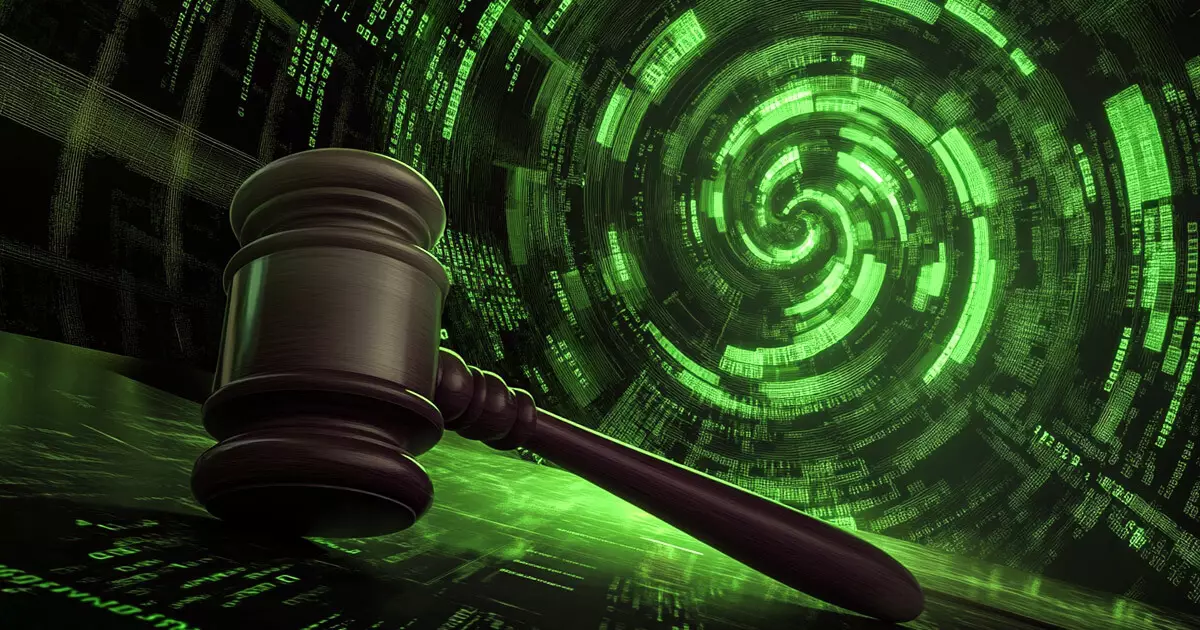In a landmark decision, a New York judge has made waves in the cryptocurrency realm by ruling against the assertion that code used in crypto protocols, such as Tornado Cash, is protected as free speech under the First Amendment. This ruling, delivered by Judge Katherine Polk Failla of the Southern District of New York on September 26, signifies a shift in the legal interpretations surrounding cryptocurrency operations, specifically treating them as money transmitters, regardless of developers’ actual control over the funds involved.
The core of the ruling revolves around Tornado Cash developer Roman Storm, who faces serious charges of money laundering, running an unlicensed money-transmitting business, and evading U.S. sanctions. His legal argument hinged on the idea that his development of the Tornado Cash protocol should be safeguarded by free speech protections. However, Judge Failla decisively rejected this defense, contending that while the act of coding can certainly be considered expressive, its application in facilitating money transactions does not fall within the realm of free speech protections.
This decision casts a long shadow over Storm’s upcoming trial set for December 2, which may signify not only a pivotal moment for him personally but also set crucial legal precedents for the cryptocurrency industry.
Broader Implications for the Crypto Industry
Judge Failla’s ruling resonates beyond Tornado Cash and touches on other crypto protocols like Samourai Wallet. By categorizing initiatives that engage in money transmission under the testing scope of the Bank Secrecy Act (BSA), the ruling lays bare a potential new landscape for crypto regulation. The legal implications are further underscored by arguments from prosecutors, who claim that both Tornado Cash and Samourai Wallet operate as unlicensed money-transmitting businesses that have failed to adhere to US sanctions.
Notably, Judge Failla asserted that a party does not need to have control over transmitted funds to be classified as a money transmitter. This legal perspective introduces a paradigm shift, which could enforce stricter regulations on how developers implement cryptocurrency technologies and potentially curtail the innovation that has characterized the industry thus far.
Reactions from the Crypto Community
The ruling has not gone unnoticed, sparking significant backlash from various stakeholders in the crypto landscape. Amanda Tuminelli, chief legal officer at the DeFi Education Fund, articulated a collective disappointment within the community, emphasizing that this ruling could impose unwarranted liability on developers. Tuminelli remarked, “The consequences of this trial will be life-changing for Storm and potentially for software developers across industries.” Her comments underline a pervasive concern that the ruling could deter innovation and empower legal systems to impose stricter constraints on software development.
Jake Chervinsky, chief legal officer at Variant, went further by condemning the decision as a troubling precedent that could threaten the very fabric of software development freedom. He described the judge’s ruling as “an assault on the freedom of software developers everywhere,” framing it as a misinterpretation of legal principles that could lead to severe repercussions for tech developers across numerous sectors.
While the criticism surrounding the ruling is robust, it also illuminates the pressing need for clearer regulatory frameworks within the cryptocurrency space. As regulators and legislators grapple with how to apply extant financial laws to innovative, evolving technologies, cases like that of Tornado Cash raise urgent issues pertaining to legal accountability in decentralized systems.
A ruling like this may prompt further legal challenges and potential appeals as the case progresses, helping to crystallize the legal definitions surrounding cryptocurrencies. As both developers and regulators contemplate the ramifications of this decision, it becomes increasingly clear that finding a balance between innovation, security, and legal conformity is imperative for the future of the cryptocurrency industry.
The ruling against Tornado Cash stands as a pivotal moment in the intersection of law and cryptocurrency, highlighting a significant evolution in how crypto protocols may be perceived legally. As the judicial landscape continues to evolve, both developers and regulators must navigate the complexities of a fast-paced tech environment, ensuring that innovation is nurtured while proper legal structures are established to prevent misuse. The Tornado Cash case could potentially set a precedent that changes not only the course of Storm’s life but also the broader implications for the accountability of software developers in an increasingly digital world.















Leave a Reply